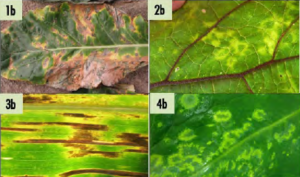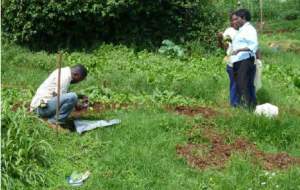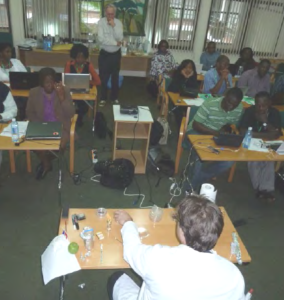

Biosecurity for aid and trade
October 22, 2014

Australia’s plant industries are keenly aware of the need for a strong biosecurity system to manage pests which affect production of crops, as well as post- harvest pests which can damage products in storage or in-transit to markets. We have world-class research and industry skills in this area to protect our ‘clean’ but vulnerable status, which is why the Crawford Fund has supported training and capacity building in plant biosecurity for our neighbours and further afield with Master Classes, group and individual training.

Over 20+ years of training we’ve addressed capacity building around pests and diseases such as citrus greening, bacterial plant pathogens, fruit and gall flies, rust fungi, soil-borne pathogens as well as in strengthening the policy and practise for integrated pest and disease management, grain storage and handling, biosafety regulation and more. And our public awareness and policy efforts have highlighted the benefits and significance of this effort for Australia, so sensitive to new and emerging threats to our export earning plant industries.
Some of our training efforts and the arguments for this important ongoing work at home and in our region were highlighted in this year’s Rural Press Club Forum in Melbourne. As explained by Dr Tony Gregson, Crawford Fund board member and chair of Plant Health Australia, in his address to that Forum, there is a biosecurity continuum from pre-border, to border, to post border and our training has assisted with capacity building along that chain.

So we are particularly pleased to be playing a role in a new two year, $1m project that will strengthen the biosecurity skills of east African biosecurity agencies to more effectively control plant pests and diseases. The Australia-Africa Plant Biosecurity Partnership aims to improve agricultural productivity and sustainability, strengthen agricultural value chains and help overcome regulatory impediments, while building capacity for agricultural innovation in Australia and Africa. The program is principally funded by the Australian International Food Security Research Centre (within ACIAR) and is being delivered by a consortium being led by the Plant Biosecurity CRC, and partners, CSIRO, CABI and The Crawford Fund.
In line with Australia’s aid framework, the partnership ultimately aims to enhance plant biosecurity capacity in target African countries and regions in order to lift agricultural economic productivity and trade in plant commodities.
Regional workshop, 27-28 October 2014, Nairobi
The Fund’s Chief Executive, Dr Denis Blight has a longstanding interest in plant biosecurity, having previously headed CAB International (CABI), which has a key role to play in the new partnership. Denis, along with the Fund’s Director of Public Affairs and Communication, Cathy Reade, and the coordinator of our Qld Committee, Dr Bruce Pengally, attended the project’s first regional workshop being held in Nairobi from 27-28 October 2014. The workshop was also attended by representatives of the project’s target countries including Burundi, Ethiopia, Kenya, Malawi, Mozambique, Rwanda, Uganda, Tanzania, Zambia, and Zimbabwe, and included representatives from a number of African government plant protection agencies, African regional trade and international bodies, and the private sector.
Photos from the workshop
[sbslideshow_deploy id=’4133′]
In opening the workshop, HE Geoff Tooth, Australian High Commissioner in Kenya, announced additional support of $400 000pa, which was warmly welcomed by participants.
“The impact that improved biosecurity can have beyond productivity increases – to the operation of agricultural markets and trade – make the aims of this project of particular interest,” said Dr Blight.
“Australia, as an island nation, is well aware of the importance of a strong biosecurity system and skills, all the way through to the farmer. This partnership provides an opportunity to improve those systems and skills through Australian expertise and experience.”
“And it’s particularly satisfying to see the focus of this new partnership is including the private sector.”
The project is then likely to include short-term placements of African biosecurity specialists in relevant biosecurity Australian agencies and related institutions; workshops in Africa on priority plant biosecurity issues; a mentoring system and workshops for African participants to ensure transfer and application of knowledge; and follow up funding to assist participants develop biosecurity action plans at national and regional level in Africa.
“The planned Biosecurity Fellowships provide a tremendous opportunity for Australian universities and institutions to impart knowledge but also collaborate and build relationships with key African plant biosecurity specialists. I’d encourage all those institutions we are approaching to get involved,” he said.
“I hope that the Fund will be able to assist in a range of these activities and build on past experience and success, particularly around training and public awareness,” said Dr Blight.
Related material




